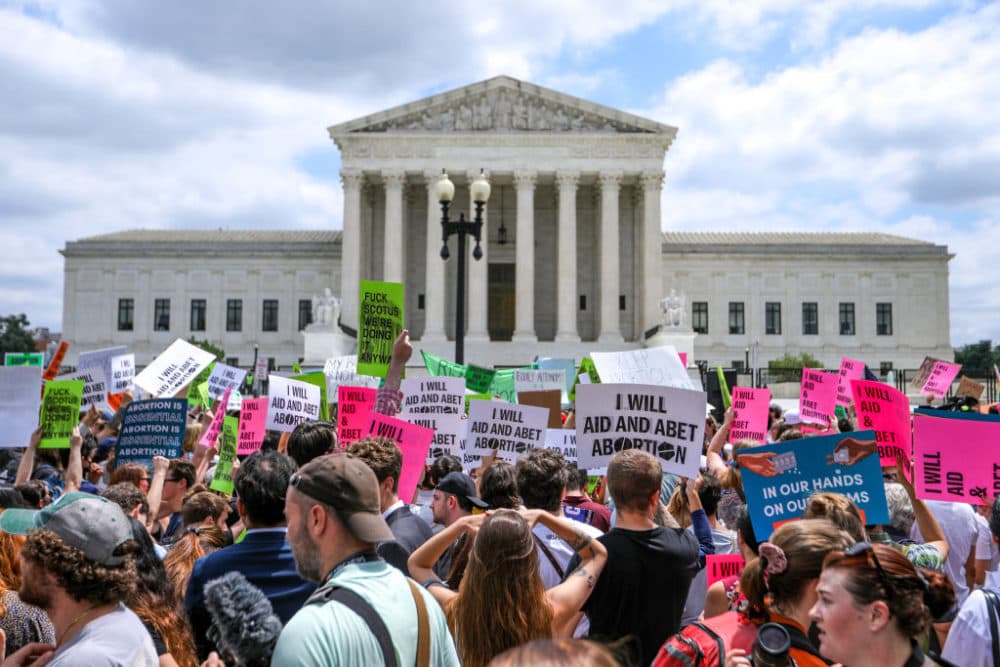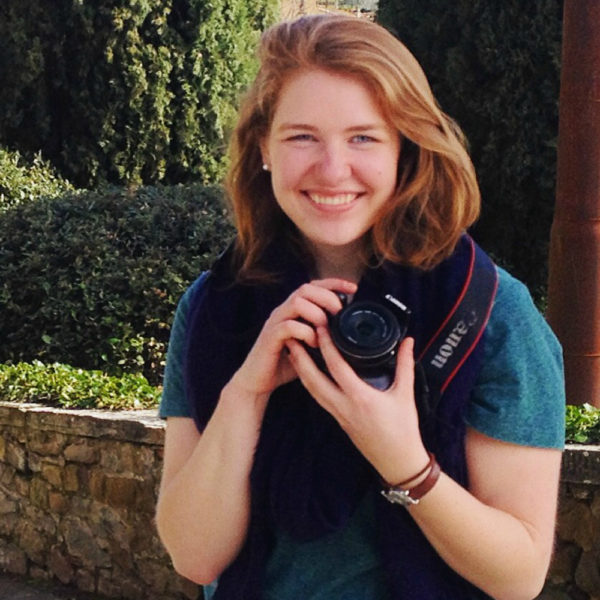Advertisement
Upset but 'ready,' local Planned Parenthood leader says group is prepared for post-Roe era
Resume
Abortion providers and policy advocates in Massachusetts condemned the Supreme Court's decision overturning Roe v. Wade.
Leadership at the Planned Parenthood League of Massachusetts called the decision "dangerous and chilling," and said the ruling will force people to travel hundreds of miles for abortion care; 22 states were already poised to ban or restrict access to abortions as soon as the decision came down.
Massachusetts is not one of those states. Abortion care is still legal and protected here, thanks in part to the 2020 ROE Act that expanded access to the procedure in the state.
Planned Parenthood operates four health clinics in Massachusetts: in Boston, Worcester, Marlborough and Springfield.
The organization's president and CEO, Dr. Jennifer Childs-Roshak, joined WBUR's All Things Considered.
Interview Highlights
On hearing Roe v. Wade has been overturned:
"We've actually been preparing for this for several years because it's been very clear from the Republican far-right playbook that this is what they were gunning for, ever since, really, Donald Trump got elected. And so, honestly, today is really just confirmation of all the things that we expected, but we are absolutely ready for it."
On the response from staff and patients at local Planned Parenthood clinics:
"I think in various degrees, everyone is devastated by it. Even though we knew this was coming, it's just, it's really hurtful, I think, to all of us.
"No matter what happens, in Massachusetts abortion will remain legal. I think that is something that's important to continue to say out loud to patients, supporters or staff. But certainly, you know, the mood is somber. We're doing as much as we can to both support staff and providers and importantly, support patients with some reassurance messages."
On the potential for more patients coming to Massachusetts for abortion care:
"Because we've been preparing for this, we can take on additional patient volume if we need to. We have the means to do that, the capacity to do that...
"In Massachusetts, we actually have done an incredibly good job with sex education, with birth control access, with primary care access, so the number of abortions in Massachusetts has gradually been decreasing for several years now. And so I would say off the cuff, it would be possible for us to increase by double or potentially more the number of patients we could see if we really had to.
Dr. Childs-Roshak added that abortion providers in Massachusetts saw some out of state patients when Texas passed a state law last year banning abortion after six weeks; this is well before many people know they are pregnant.
On the importance of Gov. Baker's executive order, designed to protect Massachusetts health providers who care for patients from other states:
"I think the executive order today from Gov. Baker was tremendously helpful. Within literally two hours of the case, or an hour of the case being released, to be able to have strong protections for patients, providers, within our state boundaries and beyond the state boundaries is really helpful and and very relieving for all of us who are providing health care...
"And to be clear, I am not a lawyer, but I think what the executive order does do is cover a significant number of worries and concerns that our patients may have, our providers may have, and anyone, frankly, working in our health centers, providing care who could potentially be at risk from some of these very challenging laws that are outside of our state."
On the most pressing issues now for equity in access to reproductive health care:
"We do have a different profile here in Massachusetts where there is more access to health care in general, but there are still gaps.
"What we will see around the country — and a little less so but still a concern here in Massachusetts — is the folks who are most impacted by changes in the law like this, by a decrease in protections, are the folks who are already marginalized and disadvantaged by the health care system. So Black [communities], brown communities, Indigenous folks and folks with low incomes, LGBTQ folks. There's a bunch of folks who are really adversely affected and significantly so in other parts of the country. But still, here, we've still got some work to do."
This segment aired on June 24, 2022.

